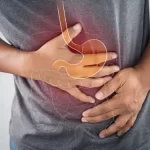The Impact of Smoking on the Stomach
Smoking is a well-documented health hazard, known for its detrimental effects on various organs, particularly the lungs and heart. However, its impact on the gastrointestinal system, specifically the stomach, is often overlooked.
This article explores the significant ways in which smoking affects the stomach, contributing to a range of gastrointestinal issues and overall health deterioration.
- Gastroesophageal Reflux Disease (GERD)
Smoking has been strongly linked to gastroesophageal reflux disease (GERD). This condition occurs when stomach acid frequently flows back into the esophagus, leading to irritation and symptoms such as heartburn, chest pain, and difficulty swallowing. Smoking affects the stomach by:
- Relaxing the Lower Esophageal Sphincter (LES): Nicotine in tobacco weakens the LES, the muscle that controls the opening between the esophagus and stomach. A weakened LES allows stomach acid to escape into the esophagus more easily.
- Increasing Stomach Acid Production: Smoking stimulates acid production in the stomach, exacerbating the symptoms of GERD.
- Peptic Ulcers
Peptic ulcers are open sores that develop on the inner lining of the stomach or the upper part of the small intestine. Smoking significantly increases the risk of developing peptic ulcers and complicates their treatment. The mechanisms include:
- Inhibiting Bicarbonate Production: Smoking reduces the secretion of bicarbonate, a substance that neutralizes stomach acid. This reduction leads to a more acidic environment, which can damage the stomach lining.
- Impairing Blood Flow: Smoking decreases blood flow to the stomach lining, hindering its ability to repair itself and making it more susceptible to ulcers.
- Enhancing Helicobacter pylori Infection: Smoking promotes the colonization of Helicobacter pylori, a bacterium strongly associated with peptic ulcers. This bacteria thrives in the acidic environment exacerbated by smoking.
- Delayed Gastric Emptying
Smoking can slow down the process of gastric emptying, where the stomach contents are moved into the small intestine. This delay can cause:
- Bloating and Discomfort: Slow gastric emptying leads to prolonged stomach distention, causing bloating and discomfort.
- Nausea and Vomiting: The delay can lead to feelings of nausea and, in severe cases, vomiting.
- Stomach Cancer
There is a well-established link between smoking and an increased risk of stomach (gastric) cancer. The carcinogenic compounds in tobacco smoke contribute to stomach cancer in several ways:
- Direct Irritation and Inflammation: Smoking introduces carcinogens directly into the digestive tract, causing chronic irritation and inflammation of the stomach lining.
- Damage to DNA: The carcinogens in tobacco smoke can cause mutations in the DNA of stomach cells, leading to cancerous changes.
- Immune System Suppression: Smoking weakens the immune system, reducing the body’s ability to fight off cancerous cells.
- Reduced Effectiveness of Treatment
For individuals already suffering from gastrointestinal issues, smoking can significantly reduce the effectiveness of treatments. This includes:
- Medications for GERD and Ulcers: Smoking can interfere with the effectiveness of medications designed to reduce stomach acid or treat ulcers, necessitating higher doses or longer treatment periods.
- Surgical Outcomes: Smokers who undergo surgery for gastrointestinal conditions often experience slower recovery and more complications compared to non-smokers.
- Impact on Digestive Enzymes
Smoking can affect the secretion and activity of digestive enzymes in the stomach, leading to impaired digestion. This can result in:
- Nutrient Malabsorption: Impaired digestion due to reduced enzyme activity can lead to poor nutrient absorption, contributing to deficiencies and overall poor health.
- Digestive Discomfort: Insufficient enzyme activity can cause symptoms such as indigestion, gas, and bloating.
Terms and Concepts to the Effects of Smoking
Here are some related terms and concepts that pertain to the effects of smoking on the stomach and digestive system:
- Nicotine: An addictive substance found in tobacco that affects various bodily functions, including the weakening of the lower esophageal sphincter (LES).
- Carcinogens: Cancer-causing substances present in tobacco smoke that can lead to various forms of cancer, including those in the digestive system.
- Gastroesophageal Reflux Disease (GERD): A chronic condition where stomach acid flows back into the esophagus, causing heartburn and other symptoms.
- Lower Esophageal Sphincter (LES): A muscle that controls the opening between the esophagus and stomach, which can be weakened by smoking, leading to acid reflux.
- Heartburn: A symptom of GERD characterized by a burning sensation in the chest due to acid reflux.
- Peptic Ulcer: A sore that develops on the lining of the stomach or the first part of the small intestine (duodenum), often exacerbated by smoking.
- Helicobacter pylori (H. pylori): A bacterium associated with peptic ulcers, which can be more problematic in smokers.
- Colonic Polyps: Growths on the lining of the colon or rectum that can become cancerous, with a higher risk in smokers.
- Crohn’s Disease: A chronic inflammatory condition of the gastrointestinal tract that is more common and severe in smokers.
- Biliary Cirrhosis: A type of liver disease that can be worsened by smoking.
- Nonalcoholic Fatty Liver Disease (NAFLD): A condition where fat builds up in the liver, which can be exacerbated by smoking.
- Gallstones: Solid particles that form in the gallbladder and can block bile ducts, potentially linked to smoking.
- Pancreatitis: Inflammation of the pancreas, which can be more common in smokers.
- Esophagitis: Inflammation of the esophagus, often due to acid reflux and aggravated by smoking.
- Dyspepsia: General term for indigestion or an upset stomach, which can be worsened by smoking.
- Malabsorption: Impaired absorption of nutrients, which can occur due to smoking’s impact on digestive enzymes and gut health.
- Inflammation: A biological response to harmful stimuli, which can be chronic and exacerbated by smoking, affecting various parts of the digestive system.
- Oxidative Stress: An imbalance between free radicals and antioxidants in the body, often increased by smoking, leading to cell damage.
- Immune Suppression: Smoking weakens the immune system, reducing the body’s ability to fight infections and recover from illnesses, including those affecting the digestive system.
- Mucosal Lining: The inner lining of the digestive tract, which can be damaged by smoking, leading to ulcers and other issues.
These terms and concepts are closely related to the impact of smoking on the stomach and digestive health, providing a deeper understanding of the mechanisms and risks involved.
Conclusion
The adverse effects of smoking on the stomach are profound and multifaceted, ranging from increased acid production and delayed gastric emptying to heightened risks of ulcers and stomach cancer.
These effects not only diminish the quality of life but also complicate the management and treatment of existing gastrointestinal conditions.
Understanding the full scope of smoking’s impact on the stomach underscores the importance of smoking cessation for maintaining gastrointestinal health and overall well-being.
Benefits of Eating Pomegranate
Foods to help with Constipation

A graduate of Computer Science and Information Management Technology. Diploma – Caregiving, Certificates – Dementia and Diabetes Awareness and Management. A researcher, blogger, songwriter, singer and acoustic guitarist. Born in an environment where natural talents such as healing are imparted at our natural birth. This natural talents of healing is the result of our genetic inheritance and the training from family environment.























